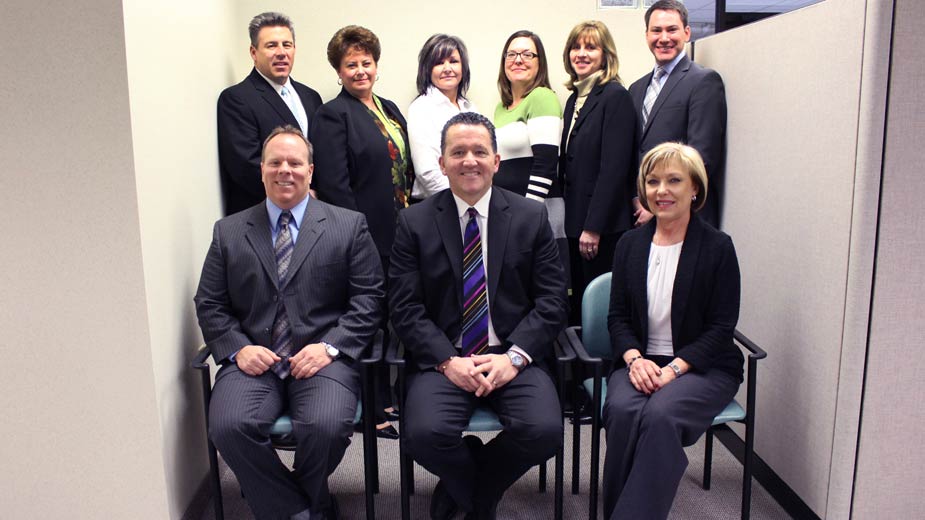Good Benefits Help Keep Good Employees
The Mahoning Valley is home to a shrinking and aging population. Mahoning, Trumbull and Columbiana counties are all experiencing population loss, which includes a loss of younger workers to other labor markets. So is Mercer County, Pa.
That makes the job of employers, who are looking to attract and retain skilled workers all the more difficult, says George W. Morris, president of the Morris Financial Group Inc. in Salem.
“It’s hard to retain younger people,” Morris says. “If you talk to business owners around here, that’s one of the biggest struggles they have. Before they even worry about acquiring, attracting and retaining business, their No. 1 problem is keeping good people to help them run the business.”
That’s why, Morris continues, in a time of constantly increasing health care costs, attractive and stable employee-benefits packages are essential to hiring and keeping well-trained employees.
“One of the things we’ve found,” he says, “is that often times employees will be willing to forgo or take a smaller pay raise to retain better benefits or to retain a lower employee contribution to their health insurance costs.”
Helping employers solve problems regarding group health insurance options and compliance under the Affordable Care Act are among the ways that Morris Financial enables local firms to tackle the problem of attracting and retaining skilled workers.
A 2016 Kaiser Family Foundation survey of employer health benefits found that employees are paying more for health insurance than a decade ago and the cost of the average family health insurance plan is rising faster than both wages and inflation.
Since 2015, the Affordable Care Act’s employer mandate has required that companies with more than 50 full-time equivalent employees provide affordable health insurance to at least 95% of their workforces and their dependents under age 26 or face a fine.
Companies with 100 or more full-time employees had to insure 70% of their employees by 2015 and 95% by 2016.
For the past four years, Morris Financial has worked with Metal & Wire Products Co Inc. of Salem to help the manufacturer navigate these and other changes in the health care landscape.
Metal & Wire is a 25-year-old company that specializes in full-service metal fabrication for several OEM (original equipment manufacturer) markets. Its capabilities include metal stamping, spring and wire forms, fabrication and welding.
Abby Snyder, its human resources manager, works closely with the staff of Morris Financial Group.
“Employee benefits are very crucial,” Snyder says. “We have a wide range of employees, from the age of 18 to 65, so having a good employee-benefit package is essential for our workforce.”
Metal & Wire employs 80, which puts the company under the provisions of the employer mandate. Regulatory compliance is handled internally, something that presents “unique challenges,” Morris says.
Working closely with Snyder, Morris helped Metal & Wire conform to the “applicable large employers” guidelines under the Affordable Care Act, which requires detailed reporting to the Internal Revenue Service. Morris Financial guided the company through its first-ever ACA compliance filing. The required form lists all company employees, shows whether they were offered affordable insurance and affirms whether they accepted it every month.
Snyder identifies navigating the compliance process as her biggest concern.
“I never would have been able to get through that process alone,” she says.
More than a year before Snyder was required to complete the government forms, Morris Financial identified that Metal & Wire was approaching the size where it would fall under ACA mandates. The cumbersome process required careful planning and information from Morris.
“They were able to give me the different categories that I needed in order to fill out that form correctly,” Snyder says. “By having the different categories in front of me, I was able to go through my 80 employees and put them into the correct category.”
Morris Financial is also helping Metal & Wire solve problems with issues that arise from health insurance claims. If an employee has an issue with, or a question about, a claim or deductible, Morris handles the communication with the health insurance provider to resolve the situation.
The company contracts for health insurance annually and before each renewal period starts, Morris gets updated employee information from Metal & Wire, confirms the updated price for the company’s current plan and represents it in negotiations with other health insurance carriers.
Metal & Wire is one of 225 area companies for which Morris Financial Group serves as a health insurance broker and consultant. “We cover about 10,000 lives,” Morris says.
Morris’ father founded Morris Financial Group in 1971. Originally known as the George W. Morris Insurance Agency, it initially specialized in life insurance before expanding into health insurance. When Morris joined his father, since retired, in 1990, the company branched out to offer retirement and financial planning services.
Bill Wilson is the vice president of group sales at Morris Financial. He says health insurance costs are the No. 1 problem challenging the businesses he’s dealt with over the past 15 years.
“There’s a number of things that we can do,” Wilson says, “from changing the plan to looking at alternative products now in the industry, and certainly other carriers, to help mitigate the increases in the cost.”
But cost is not employers’ only concern.
“They’re worried about losing good employees to a competitor,” Wilson says. “With the plan that they offer, their contribution to the plan – they don’t want to lose their employees. And that’s the No. 1 reason why employers have always offered health care: to keep and attract good quality employees.”
During his campaign, President Donald Trump promised to “repeal and replace” the Affordable Care Act. However, it’s unclear what that would mean in practice. The president has signed an executive order calling for the “prompt repeal” of the health care act, but Republicans in Congress still can’t agree on a plan to replace it. This injects considerable uncertainty into health care markets.
Despite the uncertainty, Wilson believes some aspects of the ACA will survive.
“We believe pre-existing conditions will continue to be covered,” he says. “We think maybe some components of guaranteed issue will still be around. But the current administration has been tight-lipped about what the new transition and what the new ‘Trumpcare’ — as we’ll call it — is going to be. But we think pieces and parts will be in place.”
Wilson considers it unlikely that large numbers of employers will stop providing group health insurance because it is one of the main tools employers have used, and will continue to use, to attract and to keep skilled employees.
Group health insurance coverage is commonly viewed as one of the most important aspects of desirable employee benefit packages. Employers that Morris Financial deals with typically pay a 75-25 split, where the employer pays 75% of the premium, although some still pay 100%, Wilson says.
“Our industry has worked feverishly for the past couple of years to create new products to try to circumvent the Affordable Care Act, or these small groups would have to be converted over to an Affordable Care Act plan,” Wilson continues.
One strategy for small companies is to self-fund their health care plans, a method that Wilson has used to save companies money.
“Typically, we’ve been finding that’s been saving some money, certainly on some groups where their health has improved over what it has been in the past,” Wilson says.
These groups don’t necessarily have to be devoid of older workers, either.
“The carriers can afford to take on risk — and they do,” Wilson says. “It doesn’t have to be a group with all clean, healthy employees.”
Employers also want to know where they stand in relation to other groups in Ohio. Does one’s deductable or plan design compare favorably to other employers? Morris Financial provides benchmark reports to keep them abreast of where they sit.
An increase in high-deductibles plans is another key issue that’s grown in importance over the 10 to 15 years, Wilson says. With a strong legacy of unionization, the Mahoning Valley has typically been “benefit-rich,” he says.
The average annual deductable in Ohio is typically between $2,000 and $2,500, which lags other regions of the country where the average can hit $5,000.
“Ten years ago or so, the average deductable was either $250 or $500,” Wilson says. “So things have changed drastically in our industry.”
For clients with claims issues, Gerri Erskine, benefit resource representative, solves their problems.
“The most common issues are things being billed out-of-network instead of in-network,” Erskine says.
Dealing with insurance companies is more time-consuming than difficult and eats up considerable time, Erskine says. It’s common for her to spend 30 days in reprocessing to resolve an issue.
“Any type of problem that does come up, we try to at least get an answer back to them in at least 48 hours,” she says.
The Morris Financial Group’s business can be thought of as a “services of intangibles,” as George Morris puts it. However, having a company that will help an employer provide a quality benefits package, especially health care, is key to attracting employees and understanding their needs.
Employees are “beginning to rely on their employers for quality benefits that will help them on their way to retirement,” he says.
“The more forward-thinking employers are saying, ‘OK, these employees depend on us for more than just a paycheck,’ ” Morris says.
“They want to protect the [employee’s] paycheck. They want to protect themselves if they are sick, and they also want to protect the fact that they would like to have a quality place to take a portion of their paycheck and direct it toward their future for their retirement.”
Pictured: The staff of Morris Financial Group.
Editor’s Note: “Problem Solvers” is sponsored content produced in print and on video by The Business Journal as part of our “Business Strategies” series. Click on the Strategies tab at BusinessJournalDaily.com. To learn how your company can participate, call Gail Hettrick at 330 744 5023 ext. 1011.
Copyright 2024 The Business Journal, Youngstown, Ohio.


